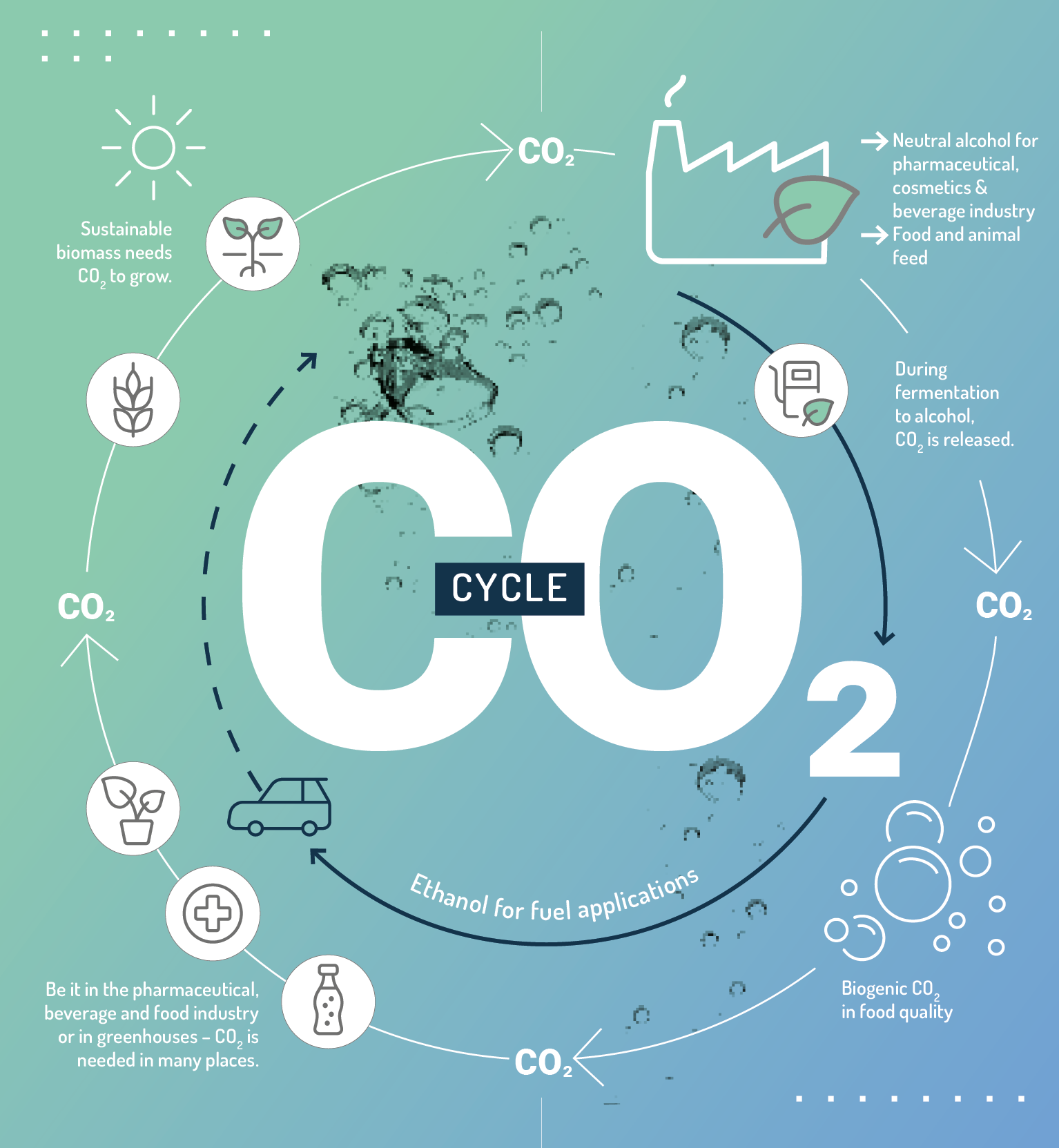Sustainable, climate-friendly and versatile - especially as a petrol substitute
The most urgent challenge facing humanity requires swift and consistent action: man-made climate change! Reducing CO2 emissions, as prescribed by the EU's "Renewable Energy Directive", requires massive efforts from all parties involved. The transport sector is still 95% based on fossil fuels. Electromobility is slowly gaining momentum, but it will be decades before a significant share is achieved. Sustainable ethanol made from renewable raw materials is already helping to reduce greenhouse gases and will continue to be an important part of the solution in the future. Super E10 - with 10% ethanol content, introduced in Belgium in 2017 - has been the reference fuel for petrol engines since 2015. But "normal" super petrol E5 has also contained up to 5 % ethanol for many years.
Other areas of application for our renewable ethanol include the beverage, food, pharmaceutical and cosmetics industries. There are further applications in the chemical industry. Here, the demand for high-purity alcohol that is as CO2 neutral as possible is increasing.
In addition to strict sustainability guidelines on the origin of biomass, the "Renewable Energy Directive" already requires that renewable ethanol saves at least 50% CO2 over the entire production process compared to fossil fuels. At BioWanze, we achieve savings of over 78% thanks to our highly efficient production plant, and we will gradually increase this figure through further efficiency improvements and valuation residual materials. But the reduction in greenhouse gases is not the only advantage of European ethanol. It has a significantly higher octane rating than petrol, which means that the higher the ethanol content in petrol, the lower the emissions of particulate matter and nitrogen oxides due to better combustion. E10 is now available in 13 European countries. In the future, higher blends of ethanol in fuel will be possible, and newer petrol engines are already approved for fuel with 20% ethanol (E20).

The Porsche bioconcept cars of the Four Motors racing team led by racing drivers Tom von Löwis of Menar and Smudo (of the band "Die Fantastischen Vier") have been running on E20 from CropEnergies from 2016 to 2024. They impressively demonstrated that ethanol combines both power and climate protection.
Our renewable ethanol is produced exclusively from European biomass mainly Belgian. Local raw materials - from a short supply radius - guarantee a high level of sustainability and create jobs and added value in rural areas. Fossil oil reserves are conserved and dependence on oil-producing countries is reduced. In addition, one ton of GMO-free protein feed is produced for every ton of ethanol produced, thus reducing the need for imports of protein-rich animal feed.

The raw materials used must not come from areas with high carbon stocks or high biodiversity.
Independent experts check the origin of the raw materials and their processing as well as the calculations of greenhouse gas savings in accordance with a state-approved certification system.
A special feature of ethanol production is the use of all resources. During production, only the starch or sugar content is required for the ethanol. The remaining components are converted into protein feed, liquefied CO2, gluten or other high added-value products.
Our quality assurance with modern process control technology and our own analysis laboratories starts with the raw materials used and only ends with the tank or tank trucks that are only used for ethanol.